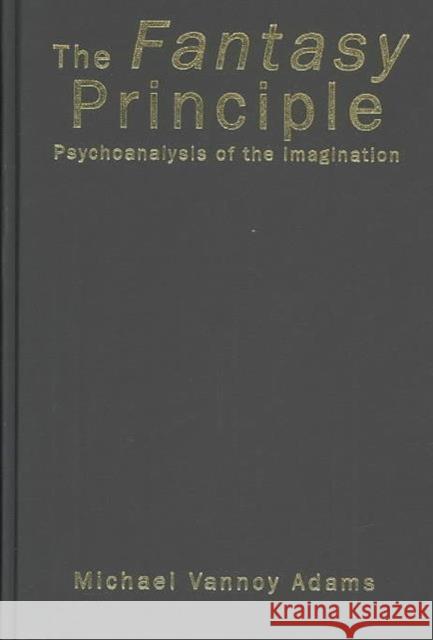The Fantasy Principle: Psychoanalysis of the Imagination » książka
The Fantasy Principle: Psychoanalysis of the Imagination
ISBN-13: 9781583918180 / Angielski / Twarda / 2004 / 268 str.
The Fantasy Principle: Psychoanalysis of the Imagination
ISBN-13: 9781583918180 / Angielski / Twarda / 2004 / 268 str.
(netto: 558,60 VAT: 5%)
Najniższa cena z 30 dni: 579,30
ok. 22 dni roboczych.
Darmowa dostawa!
Contemporary psychoanalysis needs less reality and more fantasy; what Michael Vannoy Adams calls the 'fantasy principle'. The Fantasy Principle radically affirms the centrality of imagination. It challenges us to exercise and explore the imagination, shows us how to value vitally important images that emerge from the unconscious, how to evoke such images, and how to engage them decisively. It shows us how to apply Jungian techniques to interpret images accurately and to experience images immediately and intimately through what Jung calls 'active imagination'.
The Fantasy Principle makes a strong case for a new school of psychoanalysis - the school of 'imaginal psychology' - which emphasizes the transformative impact of images. All those who desire to give individuals an opportunity to become more imaginative will find this book fascinating reading.
Contemporary psychoanalysis needs less reality and more fantasy; what Michael Vannoy Adams calls the 'fantasy principle'. The Fantasy Principle radically affirms the centrality of imagination. It challenges us to exercise and explore the imagination, shows us how to value vitally important images that emerge from the unconscious, how to evoke such images, and how to engage them decisively. It shows us how to apply Jungian techniques to interpret images accurately and to experience images immediately and intimately through what Jung calls 'active imagination'.
The Fantasy Principle makes a strong case for a new school of psychoanalysis - the school of 'imaginal psychology' - which emphasizes the transformative impact of images. All those who desire to give individuals an opportunity to become more imaginative will find this book fascinating reading.











